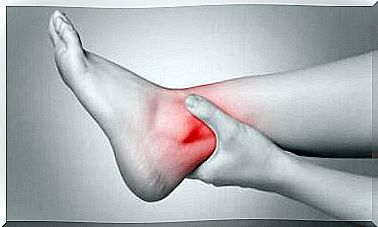Vegetable Sources Of Omega 3 – Meet 5 Foods Rich In Them

There are numerous plant sources of omega 3 fatty acids that are found in many different foods. These are polyunsaturated fats which, along with omega-6 fatty acids, belong to the so-called essential fatty acids.
They received this name due to the fact that they are necessary for the normal functioning of the body. However, the body is unable to produce them on its own. Therefore, we must provide them with food, and ideally if they will be vegetable omega 3 sources.
The benefits of omega 3 fatty acids
The properties of omega 3 fatty acids provide important health benefits for our body. Among them, we can list the most important functions in which they participate:

- They have anti-inflammatory properties.
- They also balance the effect of cholesterol by increasing the production of HDL (“good cholesterol”) and eliminating LDL (“bad cholesterol”). This fact hinders the formation of atherosclerotic plaques on the walls of the arteries.
- They reduce triglyceride levels.
- They contribute to lowering blood pressure.
- In children, they also play an important role in the maturation and growth of the brain.
- They also protect against certain diseases, such as diabetes, stroke, certain types of cancer, or ulcerative colitis.
- They have anticoagulant properties.
- They also reduce symptoms associated with rheumatoid arthritis.
On the other hand, the daily amount of omega-3 fatty acids that should be delivered to the body has not been established. However, it should be noted that some studies have shown that with a dose of 1 gram per day, cardiovascular risk is reduced.
Plant sources of omega 3 fatty acids
In this section of the article, we explain the nutritional properties of 5 different plant sources of omega-3 fatty acids that are essential for good health and disease prevention. However, there are other plant-based sources of omega-3 fatty acids.
1. Linseed oil and olive oil
Linseed oil is composed of 75% omega 3 and 25% omega 6 essential fatty acids. It is a very valuable food for the metabolism of prostaglandins, which are involved in the stabilization of inflammation. One tablespoon of olive oil provides almost 7 grams of omega 3, making it one of the most important plant sources of omega 3 fatty acids.

On the other hand, olive oil also helps us meet our need for polyunsaturated fats. The way to use olive oil on a regular basis is very simple, tasty and, of course, healthy. Just sprinkle a few drops of raw olive oil over the bread you eat for breakfast or for your midday salad.
2. Microalgae
Chlorella seaweed is the richest plant-based source of omega-3 fatty acids. Spirulina and Klamatha should be mentioned immediately , although they should be taken in small doses. In addition to being high in these nutrients, algae also have a strong antioxidant effect.
3. Vegetable sources of omega 3 fatty acids: walnuts
Unlike other nuts, walnuts have a balanced 5: 1 ratio between omega 3 and 6 fatty acids. By eating 14 walnuts, which is about 60 grams, you cover 50% of your daily omega-3 fatty acid requirements.
4. Chia seeds
Chia seeds are another very rich plant source of omega-3 fatty acids next to flaxseed. They contain as much as 33% of oil (including 62% omega 3 and 20% omega 6). However, you must remember that in order to consume these seeds, you must first macerate them, that is, just soak them.

This explains the reason why these seeds have recently become a sensation as a valuable component of our diet, especially among vegetarians. So this product, which was only sold in herbal and specialist stores at the very beginning of its career, soon found its way to the health food shelves of a supermarket.
5. Vegetable sources of omega 3 fatty acids: avocados
Avocados have also gained a lot of fame in recent years. Some diets have reserved a leading role for this fruit because of its nutritional value, as there is nothing missing in its composition. Avocados are one of the most important plant sources of omega 3 fatty acids.
The truth is, even some neuroscientists consider this fruit to be one of the best foods for maintaining a healthy brain and preventing Alzheimer’s disease.
Application
Therefore, be sure to add foods rich in omega 3 fatty acids to your diet for good health and prevent future diseases.









